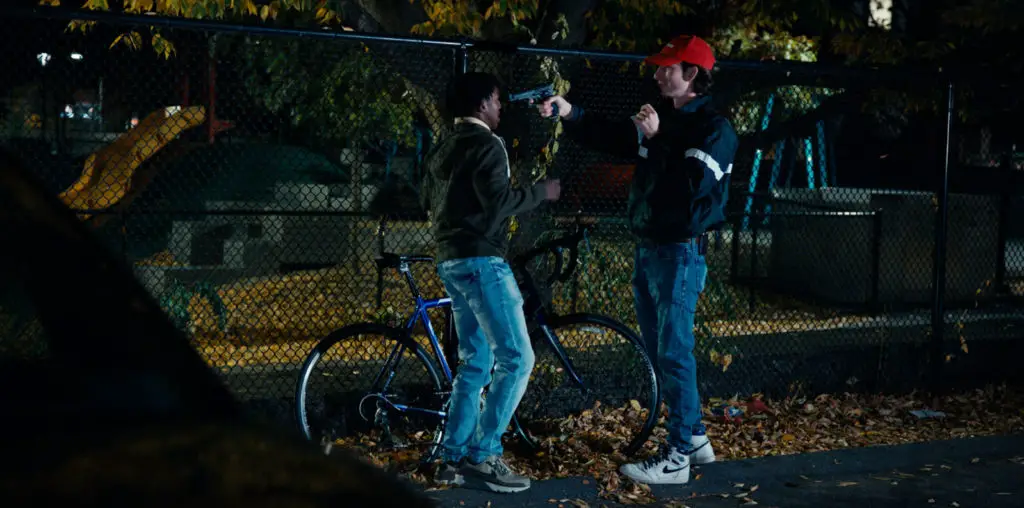
Likable enough for its own quirky originality and frantic desires, “Ruby Sparks” is the new film from directors (and husband-wife) Jonathan Dayton and Valerie Faris, who gave us the immensely enjoyable road movie “Little Miss Sunshine,” a highly acclaimed (and Oscar-winning) debut feature released by their handler Fox Searchlight Pictures almost to the day six years ago. While lightning may not strike again, especially as it attempts to reach the $60 million domestic gross their earlier effort raked in, I do smell a Summer sleeper out there, sufficiently able to do battle with the superheroes commanding those IMAX screens at the multiplex.
Written by and starring Zoe Kazan, playing opposite her real-life boyfriend Paul Dano (last seen playing Robert De Niro’s son in “Being Flynn,” but also remembered as part of that loving, dysfunctional Hoover family in “Little Miss Sunshine”), the actress-playwright (and newly minted screenwriter) embodies that (wet) dream girl that everyman hopes to nab as a life long companion. No, Ruby’s not the rubbery doll paraded about as non-fictional in 2007’s “Lars and the Real Girl,” but rather she’s a distant cousin to Harold Crick, the IRS auditor played by Will Ferrell in the 2006 film “Stranger Than Fiction.” While that movie takes the p.o.v. of the frantic monster sprung from the imagination of a semi-pathetic, friendless writer suffering from blocked creativity, “Ruby Sparks” looks at the subject from the view of Dr. Frankenstein, as portrayed by Calvin Weir-Fields (Dano), whose keystrokes generate the whimsical, fiery-haired pixie, played by Kazan, as his beautiful beast.
And yes, for those old enough to remember, she is the granddaughter of film and stage director Elia Kazan (“On the Waterfront,” “A Streetcar Named Desire,” “East of Eden,” etc.) and playwright Molly Kazan, as well as the daughter of screenwriters Nicholas Kazan and Robin Swicord. Quite the pedigree (and I was overwhelmed on the one occasion I met her granddad back in the mid-1970s).
Plugging away at his old Olympia manual typewriter, Calvin is introduced to us as a needy, nerdy man-boy in search of his second novel. Geeky looking, with greasy flat hair, he’s not any girl’s ideal catch (his single, five-year relationship ended up a mess), and he’s got blockage issues he discusses with his shrink (Elliott Gould) and his incontinent dog Scotty. Still riding the success of his debut book, “Heart Broken Old Times” ten years earlier, with the appropriate, but fading, fan base, he also has family issues with hippie-esque mom (Annette Bening), her Bohemian boyfriend (Antonio Banderas), and a successful sports agent brother (Chris Messina). He also battles with a smarmy literary rival (Britain’s comic genius Steve Coogan) and his overbearing agent (“The Daily Show’s” Assif Mandvi).
But, of course, the comedy is all in how the story and relationships unfold, all believable in Calvin’s progressing vision; how Ruby is born from the ink on the page, and how she interacts with either Calvin’s imagined world—in which he’s either crazy or something magical has occurred—or Ruby’s Calvin-divined sphere—which she accepts despite some of its stranger, forced moments. When the couple visit his mom, some of the weirdness with Mort (Banderas) helping the female charades team win (with the movie title “What Women Want”) or mom’s reluctance to let anyone in her study made me wonder if Ruby isn’t the only dreamed up character here. Is there another typewriter hidden in the family closet? Maybe it’s a “Twilight Zone” episode with a brood of off-the-page creators. Is there more than one puppet master?
Or, maybe there’s too much I’m trying to read into this smart, sophisticated comedy.
Set in Los Angeles, the bright cinematography by Matthew Libatique (Academy Award nominee for “Black Swan”) is exceptional for its apparent simpleness in capturing Calvin’s white, writer-blocked, world. There’s Ruby’s sun-bathed glow that bakes the audience, and the occasional photographic gem using reflections in the writer’s eyeglasses.
While Kazan and Dano don’t (yet) capture the deep-rooted romantic whimsicalities of Tracy and Hepburn, their off-screen chemistry has certainly helped make “Ruby Spark” one of this year’s more enjoyable moments on screen.
